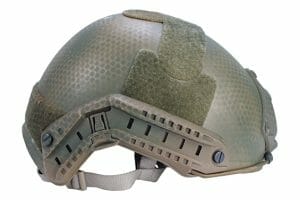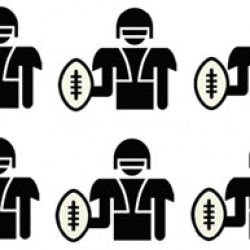Smaller Fibers, Harder Hats
A new shock-absorbing foam lowers the chances of brain injury.
Developed by UW–Madison engineers, a lightweight, ultra-shock-absorbing foam could vastly improve helmets. The new material exhibits 18 times higher specific energy absorption than the foam currently used in U.S. military-combat helmet liners, as well as having much greater strength and stiffness, which could allow it to provide improved impact protection.
Physical forces from an impact can inflict trauma in the brain, causing a concussion. But helmet materials that are better at absorbing and dissipating this kinetic energy before it reaches the brain could help mitigate, or even prevent, concussions and other traumatic brain injuries.
The new material has a novel architecture that consists of numerous micrometer-scale cylinder structures, each made of many carbon nanotubes. These structures give the material its extraordinary shock-absorbing properties.
“This new material holds tremendous potential for energy absorption and thus impact mitigation, which in turn should significantly lower the likelihood of brain injury,” says engineering professor Ramathasan Thevamaran, who led the research.
Published in the Spring 2023 issue




Comments
No comments posted yet.